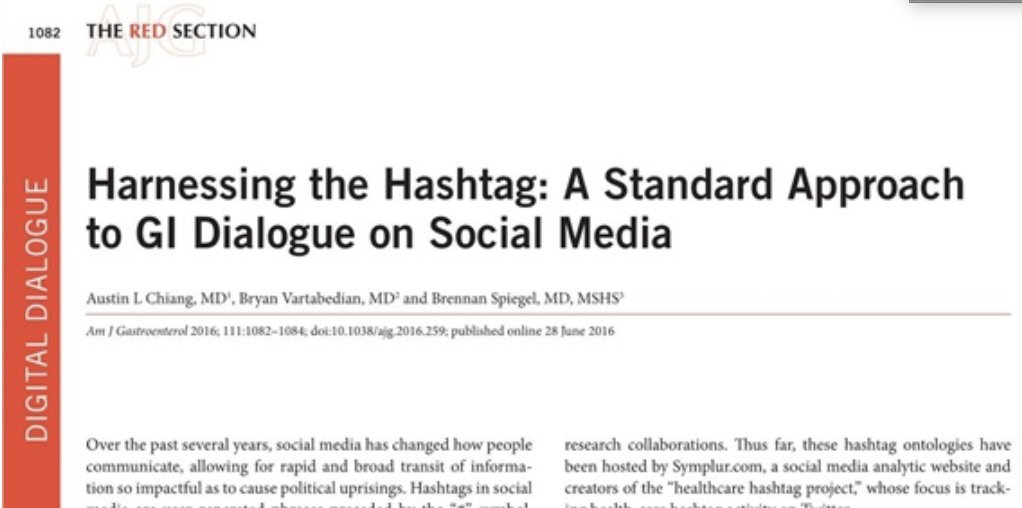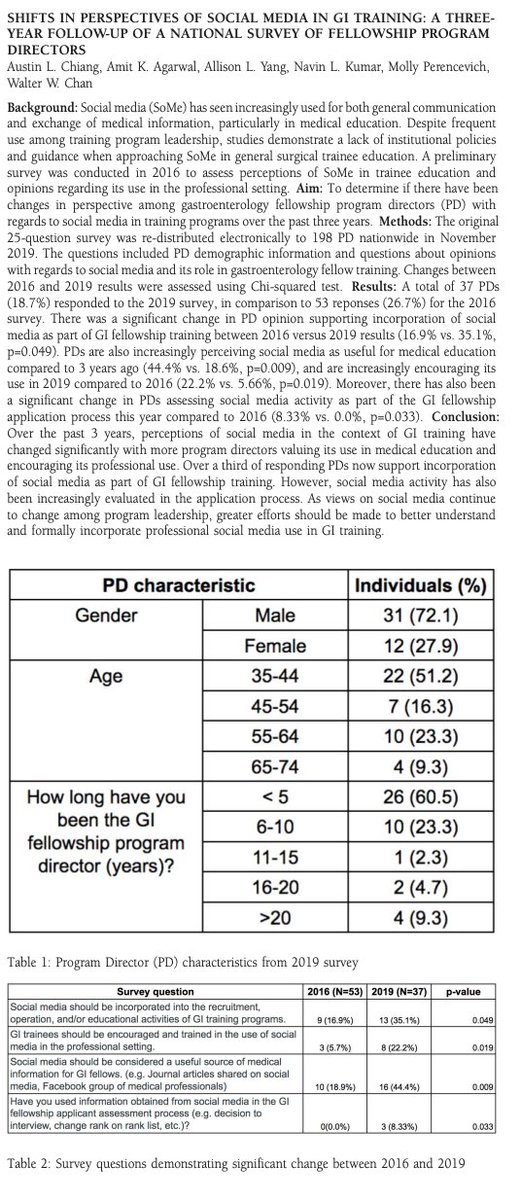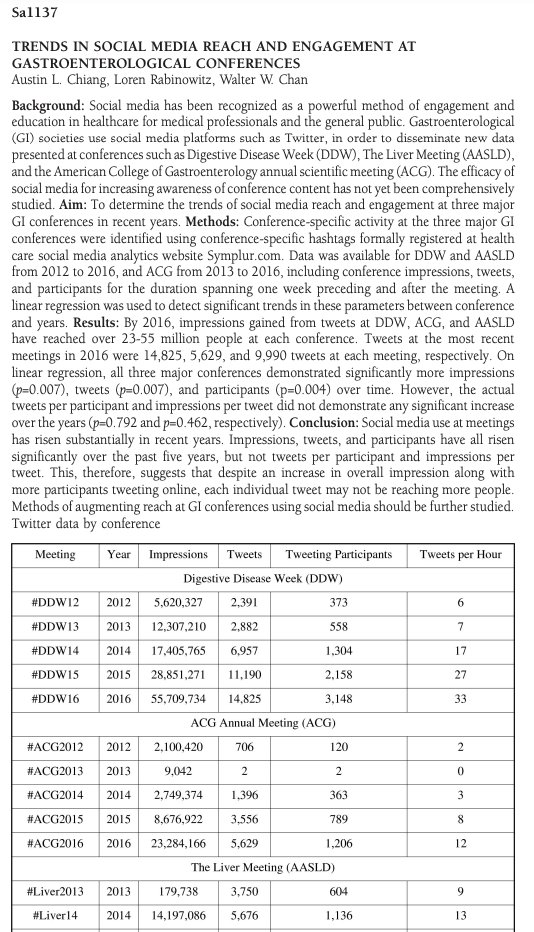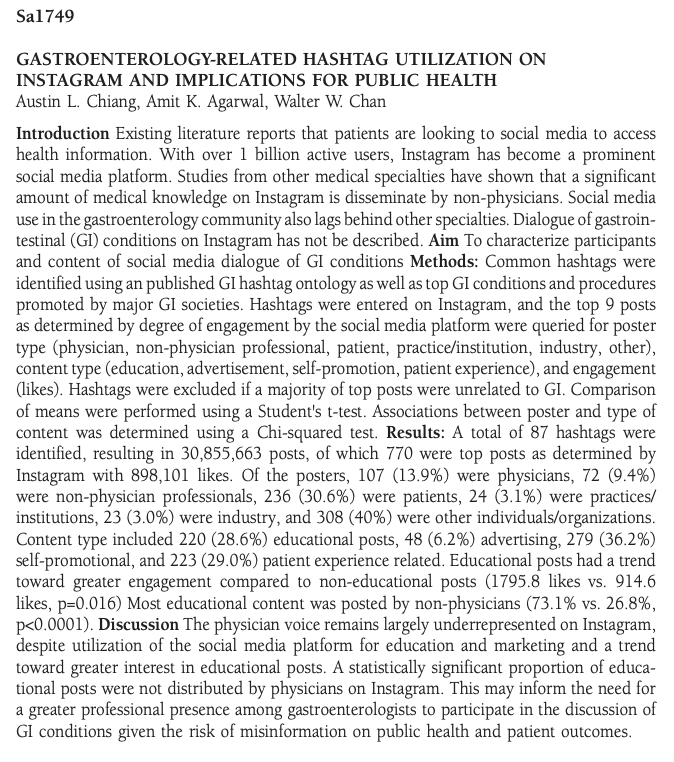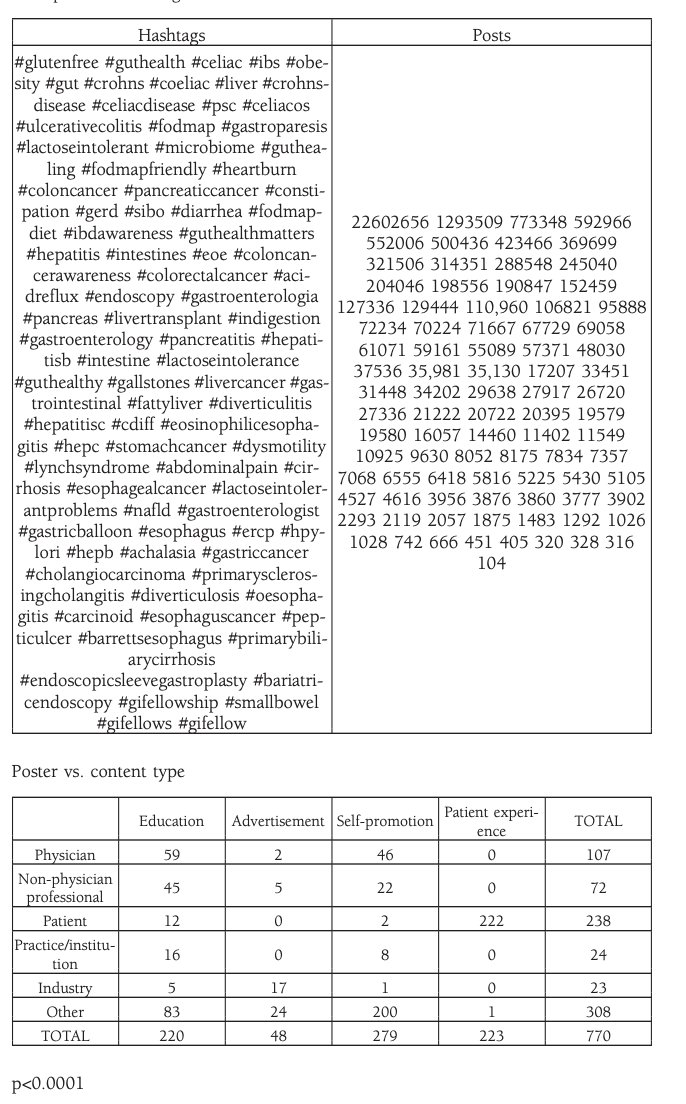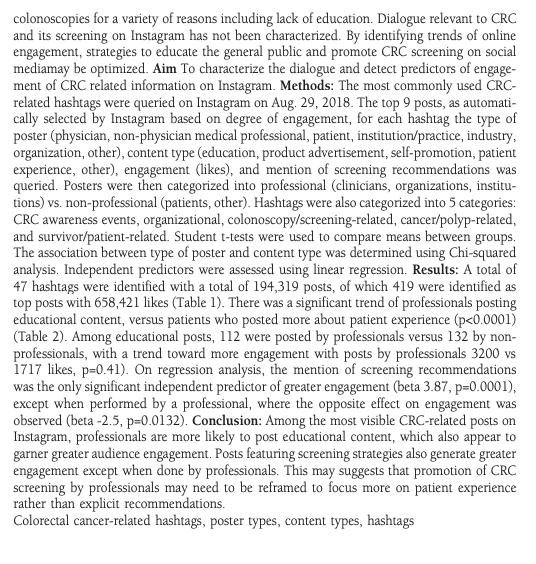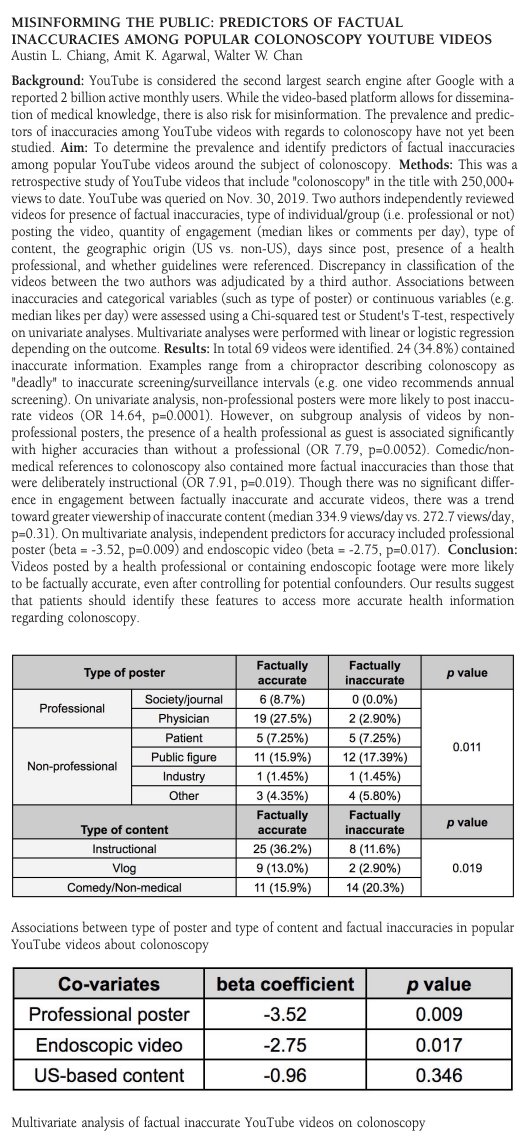Thank you @BilalMohammadMD @AmyOxentenkoMD for reigniting a convo ab #medtwitter #GITwitter, an important facet of the healthcare #SoMe landscape.
Let& #39;s review a few analyses we performed over the years on engagement + impact of GI #SoMe:
(Evidence to convince more to join?)
 https://abs.twimg.com/emoji/v2/... draggable="false" alt="🧵" title="Thread" aria-label="Emoji: Thread">
https://abs.twimg.com/emoji/v2/... draggable="false" alt="🧵" title="Thread" aria-label="Emoji: Thread">
Let& #39;s review a few analyses we performed over the years on engagement + impact of GI #SoMe:
(Evidence to convince more to join?)
Q: Is there benefit to divisional social media presence for a healthcare dept/institution?
With @DrLorenGR @walterchanMD we demonstrated an https://abs.twimg.com/emoji/v2/... draggable="false" alt="⬆️" title="Pfeil nach oben" aria-label="Emoji: Pfeil nach oben"> in institutional social media presence predicted GI divisional #ranking improvement on @USNewsHealth
https://abs.twimg.com/emoji/v2/... draggable="false" alt="⬆️" title="Pfeil nach oben" aria-label="Emoji: Pfeil nach oben"> in institutional social media presence predicted GI divisional #ranking improvement on @USNewsHealth
https://www.jmir.org/2019/9/e13345/ ">https://www.jmir.org/2019/9/e1... @jmirpub
With @DrLorenGR @walterchanMD we demonstrated an
https://www.jmir.org/2019/9/e13345/ ">https://www.jmir.org/2019/9/e1... @jmirpub
As mentioned, with @BrennanSpiegel @Doctor_V we created the GI hashtag ontology in 2016 to standardize GI discourse on Twitter with all GI societies/journals at the time, after a discussion w @subatomicdoc whose work in Heme/Onc inspired us. @symplur
https://journals.lww.com/ajg/Citation/2016/08000/Harnessing_the_Hashtag__A_Standard_Approach_to_GI.2.aspx">https://journals.lww.com/ajg/Citat...
https://journals.lww.com/ajg/Citation/2016/08000/Harnessing_the_Hashtag__A_Standard_Approach_to_GI.2.aspx">https://journals.lww.com/ajg/Citat...
Q: What about #socialmedia in GI training?
We performed a survey of GI fellowship program directors: #SoMe increasingly recognized as a valuable tool in #meded among PDs but #SoMe training still lacking as part of curriculum.
@AllisonYangMD @WalterChanMD
https://www.sciencedirect.com/science/article/pii/S0016508520313305?via%3Dihub">https://www.sciencedirect.com/science/a...
We performed a survey of GI fellowship program directors: #SoMe increasingly recognized as a valuable tool in #meded among PDs but #SoMe training still lacking as part of curriculum.
@AllisonYangMD @WalterChanMD
https://www.sciencedirect.com/science/article/pii/S0016508520313305?via%3Dihub">https://www.sciencedirect.com/science/a...
Q: Twitter activity at GI conferences?
Significantly increased engagement over time, but overall reach may be limited. This may suggest a need to devise novel ways to augment reach beyond #GITwitter. @WalterChanMD @DrLorenGR
https://www.sciencedirect.com/science/article/pii/S0016508517310673?via%3Dihub">https://www.sciencedirect.com/science/a...
Significantly increased engagement over time, but overall reach may be limited. This may suggest a need to devise novel ways to augment reach beyond #GITwitter. @WalterChanMD @DrLorenGR
https://www.sciencedirect.com/science/article/pii/S0016508517310673?via%3Dihub">https://www.sciencedirect.com/science/a...
Q: Is there an association with social media activity and journal article citations?
After controlling for IF, type of article, etc, there was an independent association w increased journal article citations and social media engagement https://www.sciencedirect.com/science/article/pii/S0016508516328554?via%3Dihub">https://www.sciencedirect.com/science/a...
After controlling for IF, type of article, etc, there was an independent association w increased journal article citations and social media engagement https://www.sciencedirect.com/science/article/pii/S0016508516328554?via%3Dihub">https://www.sciencedirect.com/science/a...
The above was supported by similar study using altmetrics I was in w @ZachSmithGI @mikewallacemd https://www.sciencedirect.com/science/article/pii/S0016510719302196?via%3Dihub">https://www.sciencedirect.com/science/a...
Q: Were there differences in how content is disseminated by GI journals on SoMe?
On multivariate analysis, papers on motility, #cancer, #education, QI were mentioned more by tweeting journals. Basic science papers receive less SoMe exposure. #meded https://www.sciencedirect.com/science/article/pii/S0016508516328165?via%3Dihub">https://www.sciencedirect.com/science/a...
On multivariate analysis, papers on motility, #cancer, #education, QI were mentioned more by tweeting journals. Basic science papers receive less SoMe exposure. #meded https://www.sciencedirect.com/science/article/pii/S0016508516328165?via%3Dihub">https://www.sciencedirect.com/science/a...
More recently we looked at the GI-related hashtags on other platforms such as @Instagram to better characterize online dialogue, demonstrating underrepresentation of MDs speaking on GI-related topics + a trend toward greater interest in educational posts.
https://www.sciencedirect.com/science/article/pii/S0016508519378163?via%3Dihub">https://www.sciencedirect.com/science/a...
https://www.sciencedirect.com/science/article/pii/S0016508519378163?via%3Dihub">https://www.sciencedirect.com/science/a...
Narrowing in on colorectal cancer content on Instagram, we noticed that there was sole independent predictor of greater engagement was posts on screening recommendations. #crcsm #colorectalcancer
https://www.sciencedirect.com/science/article/pii/S0016508519389668?via%3Dihub">https://www.sciencedirect.com/science/a...
https://www.sciencedirect.com/science/article/pii/S0016508519389668?via%3Dihub">https://www.sciencedirect.com/science/a...
We the nexplored the engagement of a new Twitter account for a burgeoning society, @ABEBariatric inthe months after its inception @GIE_Journal @MetabolicEndo @GinaSteiner39 https://www.sciencedirect.com/science/article/pii/S0016510718301834?via%3Dihub">https://www.sciencedirect.com/science/a...
Recently we looked at #misinformation re: colonoscopy on @YouTube and how professional or endoscopic content were more likely to be accurate after controlling for confounders. IB: work pioneereed by @LoebStacy in urology.
https://www.sciencedirect.com/science/article/pii/S0016508520337616?via%3Dihub">https://www.sciencedirect.com/science/a...
https://www.sciencedirect.com/science/article/pii/S0016508520337616?via%3Dihub">https://www.sciencedirect.com/science/a...
And finally, a synopsis of where things stand (from my perspective) as someone active on multiple platforms, summarized in this @NatRevGastroHep article: https://www.nature.com/articles/s41575-020-0289-5">https://www.nature.com/articles/...
. #MedTwitter has been a tremendous community and educational resource. IMO, to enhance patient engagement and public health messaging, other platforms that possess more favorable algorithms for content dissemination should also be leveraged.
I also believe we must focus not only on information but also humanizing medicine and working with institutional policy. This may involve direct communication with social media platforms, institutions, and societies, which is part of an overarching mission w @AHSM_org

 Read on Twitter
Read on Twitter